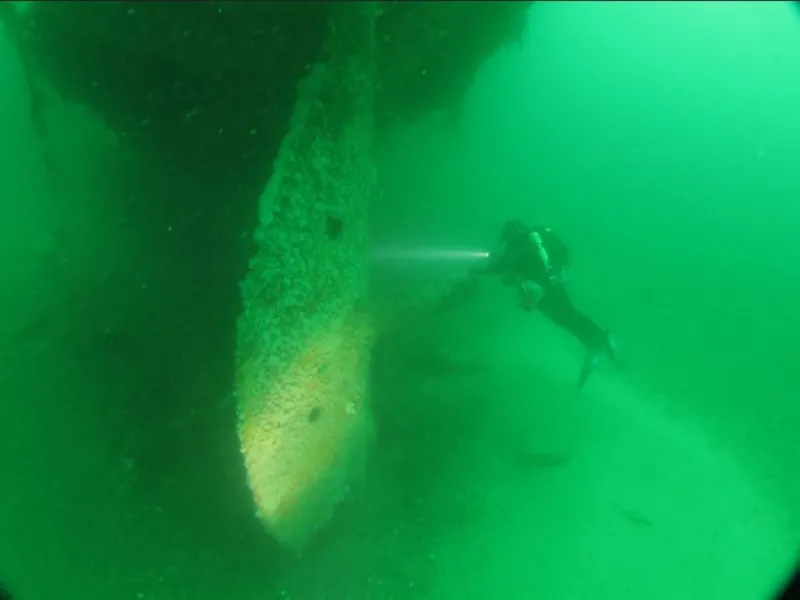UK
-
Search for fish prompted 37-year shipwreck quest
- On 01/01/2025
- In Wreck Diving

By Catherine Nicoll - BBCA hunt for better fishing grounds led a man to spend over three decades documenting more than 2,000 shipwrecks in the Irish Sea.
Adrian Corkill's interest in finding vessels lost in the waters around the Isle of Man was sparked in 1987 when he started fishing in a boat on a wreck off Laxey in his spare time.
Curious about the ship on the seabed below, he began researching its story, and went on to uncover 150 other wrecks. Having complied a database of more than 2,000 wrecks, nearly 2,000 wreck sites, and about 1,100 vessels, the 58-year-old transferred the information to Manx National Heritage for safekeeping.
Looking back on his 37-year hobby, Mr Corkill said his interest was initially "fish-orientated".
"I thought the wrecks are good places for fishing, and if you can find more wrecks then you can get more fish." But as time went on his interest intensified, and culminated with him learning to dive to broaden the range of wrecks that could be reached.
While a ship's bell was the most straightforward way of identifying a vessel, finding it was not always that simple. "It's a detective story. Sometimes you're lucky and you get the bell straightaway, and that's job done.
"Other times you can dive a wreck repeatedly and still not find the bell. "It's probably covered in debris, because a lot of the wrecks are quite collapsed.
"If a bell falls within the wreckage it can be buried underneath metal or sand, so it will be there somewhere.